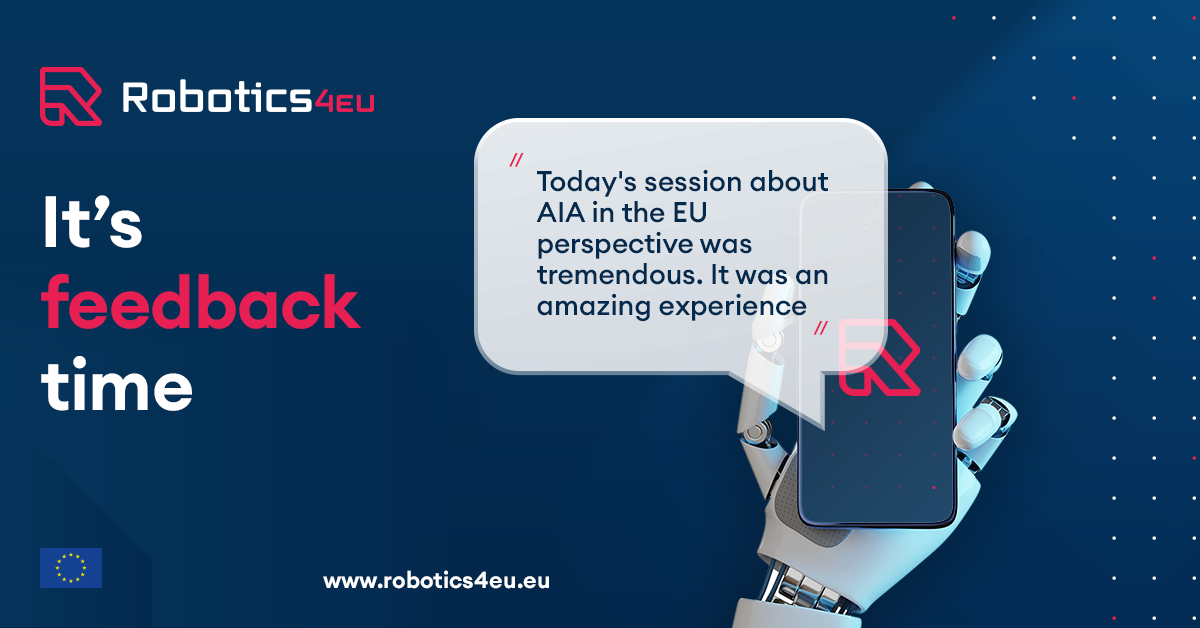
On September 25, 2023, NTNU held the third of a series of digital workshops on robotics for agile production under the title “Regulating AI: The Impact of the EU AI Act on robotics for agile production”.
During this workshop, we invited the audience, composed of members from the scientific community, industry and civil society, to reflect on themes of responsible robotics in agile production and manufacturing. On the 14th of June 2023, the European Parliament adopted the AI Act, a comprehensive legal framework for the development and use of Artificial Intelligence (AI). In this workshop, we invited expert talks updating the audience on the new aspects of the AI Act and discussing its potential effect on AI-based robots for agile production.
The event saw the participation of two keynote speakers: Vera Lùcia Raposo, Professor of Law and Technology at NOVA School of Law, and Martin Ebers, President of the Robotics & AI Law Society (RAILS). Both speakers delineated the historical background and context of the AI Act, first proposed by the European Commission in 2021, by the European Council in 2022 and recently by the European Parliament. The future of the AI Act is still uncertain since negotiations between the three bodies, so-called trialogues, will take place in the future. In the context of robotics, other important recent regulatory developments include the General Product Safety Regulation (GPSR) which will enter into force on December 14th 2023, and the new Machinery Regulation adopted at the end of 2022.
The new AI Act is based on a risk-assessment model categorising AI applications into low-risk, high-risk and unacceptable risks and delineating specific requirements for each category. Increased attention is given to human oversight and data protection, requiring AI systems to undergo self-assessments. In the context of robotics, falling under the machinery regulation, AI-based robots need to undergo conformity assessment by external bodies to be implemented. To allow space for innovation, the EU includes the establishment of so-called regulatory sandboxes with leaner regulations to allow for the development of new AI-based systems and tools.
However, according to Professor Ebers, the AI Act proposes too rigid a distinction between risk categories which creates confusion. Both speakers agreed that the biggest challenge in the application of the AI Act is the legal uncertainty caused by the existence of multiple overlapping regulations. As an example, AI-based robots fall under the AI Act as well as the GPSR and the Machinery Regulations without clear distinction. This causes conflict between legal bodies and authorities as well as confusion among robot developers. Professor Raposo stresses how the excessive complex requirements proposed limit space for innovation.
The audience was very interested in the presentations given by the keynote speakers and asked questions about how to mitigate the issue of legal uncertainty. In the breakout sessions, data issues emerged as the most important ones in the context of regulation. As a solution to legal uncertainty, participants stressed the need for transparency by robot developers, being very clear in indicating which regulation they are following. However, questions around the enforcement of data protection and the use of open data remain to be addressed more concretely by regulatory bodies. Our next workshop, on October 24th, will focus on these aspects and discuss potential mitigation measures.
The goal of the Robotics4EU project is to promote the more widespread adoption of AI-based robots in Europe. In this workshop, we collaborated with innovators, researchers, citizens, and decision-makers working in agile production, which helped raise awareness of non-technological aspects of robotics among stakeholders. This workshop has been exciting for Robotics4EU to gather feedback on the RoboCompass and understand sector-specific challenges.
Author: Silvia Ecclesia









